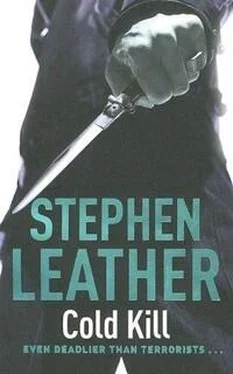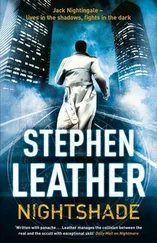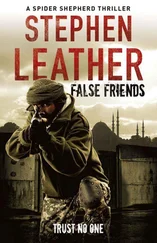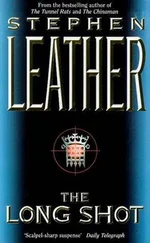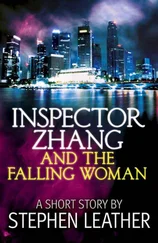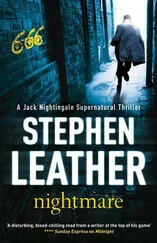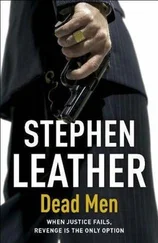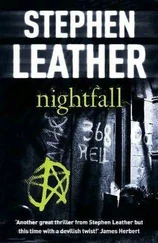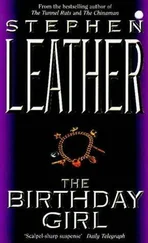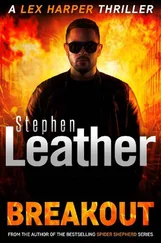Stephen Leather - Cold Kill
Здесь есть возможность читать онлайн «Stephen Leather - Cold Kill» весь текст электронной книги совершенно бесплатно (целиком полную версию без сокращений). В некоторых случаях можно слушать аудио, скачать через торрент в формате fb2 и присутствует краткое содержание. Жанр: Триллер, на английском языке. Описание произведения, (предисловие) а так же отзывы посетителей доступны на портале библиотеки ЛибКат.
- Название:Cold Kill
- Автор:
- Жанр:
- Год:неизвестен
- ISBN:нет данных
- Рейтинг книги:4 / 5. Голосов: 1
-
Избранное:Добавить в избранное
- Отзывы:
-
Ваша оценка:
- 80
- 1
- 2
- 3
- 4
- 5
Cold Kill: краткое содержание, описание и аннотация
Предлагаем к чтению аннотацию, описание, краткое содержание или предисловие (зависит от того, что написал сам автор книги «Cold Kill»). Если вы не нашли необходимую информацию о книге — напишите в комментариях, мы постараемся отыскать её.
Cold Kill — читать онлайн бесплатно полную книгу (весь текст) целиком
Ниже представлен текст книги, разбитый по страницам. Система сохранения места последней прочитанной страницы, позволяет с удобством читать онлайн бесплатно книгу «Cold Kill», без необходимости каждый раз заново искать на чём Вы остановились. Поставьте закладку, и сможете в любой момент перейти на страницу, на которой закончили чтение.
Интервал:
Закладка:
Shepherd forced a smile. ‘I’ll call you tonight, let you know how I got on.’
He headed out of the park. He decided against using the Tube and flagged down a black cab. His mobile wouldn’t work on the Underground and he had some urgent calls to make.
The Saudi stirred his coffee slowly and looked out of the window. The street outside was filled with housewives loaded with shopping, office workers stealing time from their employers to run personal errands, youngsters in hooded tops smoking cigarettes furtively, planning their next shoplifting trip. A slim leather briefcase stood at his feet.
He sipped his coffee. Strong and bitter, as he liked it. He checked his watch. It was time. He had spent an hour in the coffee shop and was on his third espresso. He was sure that no one was watching the building opposite. He picked up his mobile. The Sim card was new and this was the first time he had used it. It would also be the last: later on that day he would destroy it. The way in which the authorities allowed the liberal use of untraceable phonecards made no sense to the Saudi. Disposable Sim cards were used by terrorists, drug-dealers, money-launderers, by anyone who wanted to communicate without detection. Mobile phones were also used to detonate bombs, but governments in the West allowed anyone to buy a Sim card without identifying themselves. The Saudi had two dozen in his briefcase, not one of which could be traced back to him. It was greed, pure and simple: the phone companies made money, and so did the governments – from tax, and from the licences they auctioned to the phone companies. No one wanted to kill the golden goose.
He tapped out a number. The man who answered didn’t identify himself. He said simply, ‘Yes?’
‘Our meeting for tomorrow is still on schedule?’ asked the Saudi.
‘The following day would be better,’ said the man.
The Saudi ended the call. He finished his coffee and picked up his briefcase, then walked across the street. Between a shop selling bric-a-brac and an off-licence, a door led up to the shabby flats above. There were eight buttons in two rows of four. There had once been paper stickers on the buttons with typed names but now they were all illegible. Someone had written the number ‘2’ on one in pencil. The Saudi pressed it. Almost immediately the door lock buzzed. The Saudi pushed his way in and climbed a set of bare wooden stairs to the second floor. The man he was there to meet had already opened the door. ‘ Allahu akbar,’ he said.
‘ Allahu akbar,’ said the Saudi, and walked into the flat.
The man was a Chechen. He had fought for his own people against the Russians, and in Bosnia. It was while he was fighting Serbs in the former Yugoslavia that he was approached by a representative of a Saudi charity. Two weeks later he was in Pakistan. Initially he was trained in the use of explosives but gradually his instructors realised that Ilyas could be used for greater things. His commitment to the Muslim cause, the fact that he had no living family and hated all things Western made him the perfect candidate to join the ranks of the shahid. They began to groom him to sacrifice his life for the jihad. He was shown videos recorded by shahids who gone to sit in heaven with Allah, then guided through the Koran and shown that there could be no greater glory than to die for Islam.
It was the Saudi who had realised that Ilyas was too valuable to be thrown away on a suicide mission, no matter how important the target. He had fair hair and green eyes, and spoke excellent English, albeit with a strong accent. No one would suspect he wasn’t European until they heard his voice. He was fearless, trained in the use of most arms from pistols to rocket-propelled grenades, a skilled driver and mechanic.
The flat where Ilyas had been staying for the past month was small but clean: a cramped sitting room with a futon and a coffee table, tiny bedroom with a single bed, and a cooking area with a double hotplate, a microwave and fridge. A copy of the Koran lay open on the coffee table.
An orange fluorescent jacket hung over a chair with ‘ NETWORK RAIL ’ on the back. Next to it stood a large blue metal toolbox with patches of rust on the sides.
The Saudi went to the futon and sat down. He placed his briefcase on the coffee table and opened it. Ilyas picked up the Koran and sat with it in his hands as the Saudi got out eight detonators and put them on the table. There were six triggers in the briefcase, which he laid beside the detonators; only four would be needed but the Saudi had included two spares. There were four nine-volt batteries, with enough wiring and connectors to complete four trigger circuits.
Ilyas studied the components and nodded slowly. ‘Perfect,’ he said. ‘When?’
‘Soon,’ said the Saudi. ‘ Inshallah.’
Shepherd sat holding his mobile phone as the driver of the black cab negotiated the traffic heading south. He had a serious problem and wasn’t sure how to deal with it. He’d only taken the Tony Corke mobile with him to the meeting. It was bugged and Hargrove had been listening to the conversation, assuming he’d been able to hear it through the pea coat. But Shepherd needed to talk to him. If he used the phone to call Hargrove, there’d be a record on the Sim card. He could delete the number afterwards but an electronics expert would be able to retrieve it. If the Albanians checked the phone when he arrived in Paris, they might want to know whom he’d called. Worse, they might even check the phone, and if they discovered the transmitter it would all be over.
Shepherd needed to ditch the phone, but he also needed a replacement. And for that he had to speak to Hargrove. He stared out of the window and cursed. Even if Hargrove had got on the case as soon as he’d heard that the Uddin brothers were sending him to Paris, Shepherd doubted he’d have time to arrange anything like adequate back-up. Once he was on the train it would take just over two and a half hours to get to Paris. Men had to be assigned, briefed and put in position. Surveillance equipment had to be requisitioned. He could talk to Hargrove and the bug would pick it up, but he’d have no idea if Hargrove had heard him. Equipment failed, usually at the worst of times.
Shepherd had just decided he would have to use the mobile when it rang. It was Hargrove. ‘We’re right behind you, Spider,’ said the superintendent.
Shepherd resisted the urge to look out of the rear window. ‘I’ve got to switch phones,’ he said.
‘Sharpe is on his way, on the back of a bike,’ said Hargrove. ‘He’ll be at Waterloo waiting for you. Men’s toilet. Swap phones and remove this number from the Sim card. You’ll be fine.’
Shepherd smiled to himself. Hargrove, as usual, was way ahead of him – he would be a tough act for Button to follow.
‘I’ve already been on to Paris,’ said Hargrove. ‘They’re getting teams in place.’
‘It’ll be tight.’
‘They promised me at least four men and another monitoring CCTV at the station.’
‘Are you going?’ asked Shepherd.
‘We’ll be on the train but we’ll keep our distance.’
‘Thanks. I’ll feel better knowing you’re around.’
‘It’s short notice, but in a way it’ll help the case,’ said Hargrove. ‘The French won’t have time to get audio but they’ll take pictures and hopefully identify the Albanians. That’ll give us a big advantage for when you do the actual run.’
‘Agreed,’ said Shepherd.
‘Is the ticket first or standard?’
‘Standard,’ said Shepherd.
‘In what name?’
‘Peter Devereux,’ said Shepherd. ‘Same as on the passport they’ve given me.’
‘Okay, let me call Eurostar, get myself and Sharpe on board. Be lucky, Spider.’
Читать дальшеИнтервал:
Закладка:
Похожие книги на «Cold Kill»
Представляем Вашему вниманию похожие книги на «Cold Kill» списком для выбора. Мы отобрали схожую по названию и смыслу литературу в надежде предоставить читателям больше вариантов отыскать новые, интересные, ещё непрочитанные произведения.
Обсуждение, отзывы о книге «Cold Kill» и просто собственные мнения читателей. Оставьте ваши комментарии, напишите, что Вы думаете о произведении, его смысле или главных героях. Укажите что конкретно понравилось, а что нет, и почему Вы так считаете.
